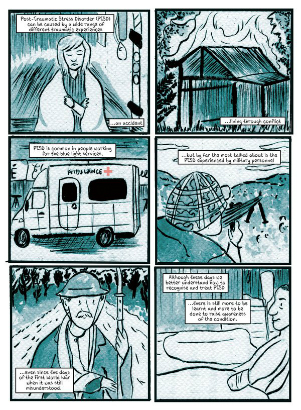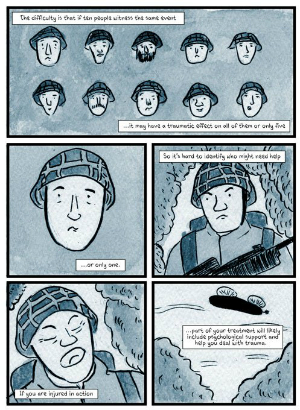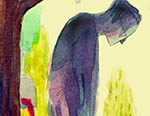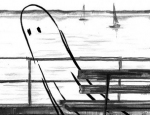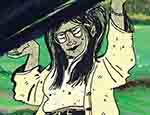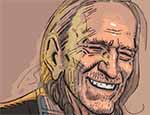The greatest strength of Samuel C. Williams’s At War with Yourself – another graphic medicine offering from the ever burgeoning Singing Dragon line – is that it tackles a complex subject with accessible clarity.
Last year at BF I reviewed the first instalment of All at Sea by Williams; a comic which examined the profound rite of passage of losing a parent. Subtle yet resonant, it had an emotional depth that is echoed in Williams’s examination of living with Post-Traumatic Stress Disorder in the pages of At War with Yourself.
 Slightly meta in construction it gives an account of the life of Samuel’s friend Matt, a former serviceman. We observe how they first met through their daughters’ attendance at the same nursery and how casual acquaintance became something stronger as the pair opened up to each other about their individual struggles with mental health issues.
Slightly meta in construction it gives an account of the life of Samuel’s friend Matt, a former serviceman. We observe how they first met through their daughters’ attendance at the same nursery and how casual acquaintance became something stronger as the pair opened up to each other about their individual struggles with mental health issues.
These 30 or so pages have a down-to-earth presentational style that is conversational and informal in its approach, right down to scenes of Williams asking Matt if he can create a comic about him. It’s a style that lends an everyday immediacy to extraordinary circumstances but one that aptly reminds us of the reality that the discussion is rooted in.
Williams allows Matt to tell his story at his own pace, describing how the effects of his PTSD have fused his army training into his interactions with the world in his civilian existence: moments of paranoia when driving as he becomes fixated on the possibility of being tailed for example, scoping out coffee shops for exits in case of attack, or the night terrors that invade his nocturnal “rest”.
From there At War with Yourself carefully explores the reasons behind Matt’s own PTSD, the triggers that can bring on a traumatic episode and a more expansive analysis of the different ways the disorder can affect sufferers and its causes. That last point is an important one as Williams is quick to point out that this is a study of just one individual’s experience and PTSD’s manifestations can be very different depending on separate circumstances.
Structurally, this is an uninvolved narrative in terms of delivery but, like many examples of the communicative power of graphic medicine, that straightforward quality is what makes the book so relatable. Similarly, Williams’s visuals trade on lucidity over elaboration, adding an earnest humanity to his storytelling.
Samuel C. Williams has proven himself in the past to be a creator who can deftly convey personal experience with a delicate and thoughtful understatement. Informative and sensitive, At War with Yourself will open the eyes of those unaware of the ramifications of living with PTSD while assuring others that they are not alone.
Samuel C. Williams (W/A) • Singing Dragon Books, £7.99





